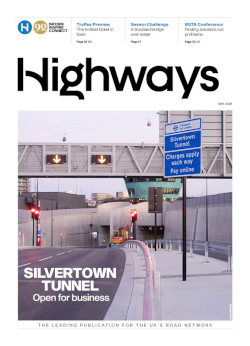Released today, the report, Green Light: Next Generation of Road User Charging for a Healthier, More Liveable London, calls for London to move towards an innovative new road user charging scheme which charges drivers on a per-mile basis.
Centre for London say that costs would vary by vehicle emissions, local levels of congestion and pollution and availability of public transport alternatives – and prices would be set before the journey begins.
The scheme would be integrated with London’s wider transport system via a new app and digital platform, which the report proposes would be run by Transport for London. The scheme, which the report calls City Move would provide Londoners with more choice about how they travel around the city.
City Move would utilise the latest technology to give Londoners all their travel information in one place, allowing them to compare, plan and pay for journeys. Drivers, for example, would be presented with costs and impacts of using their vehicle versus alternative modes of transport.
The report emphasises the need to update the existing system; while the new Ultra Low Emission Zone (ULEZ) is said to be a much-needed environmental measure, it comes on top of the existing Congestion Charge, and proposed charges for the new Silvertown and Blackwall tunnels. The report suggests that this means that by 2025, London could have at least five separate road user charging schemes, each featuring different vehicle standards, hours of operation, charge amounts and payment arrangements.
The report outlines a number of benefits of the City Move app and connected road user charging scheme:
- Fairer than the Congestion Charge and ULEZ – rather than charging drivers a flat daily rate regardless of how much they drive in a zone, the scheme would consider the impact of individual journeys in terms of journey length, road surface damage, economic costs and environmental damage.
- Tackle city-wide air pollution – charging drivers on the most congested roads the equivalent of a cup of coffee or a bus ticket could reduce total emissions and air pollution levels across the whole of London by up to a fifth (over and above the anticipated impact of the current ULEZ).
- Better experience on the roads – the scheme would reduce congestion and allow investment in roads maintenance, creating a better journey for all road users.
- Better for business – the scheme could reduce traffic overall, thereby reducing delays and helping business to make efficiency savings.
- A healthier, more liveable city– City Move would promote the use of public transport and active travel, making the streets more pleasant and inviting places for people, which would encourage Londoners to lead more active lifestyles.
The report therefore calls on the Mayor to lead on the development of a smarter, fairer and healthier transport system – one with a new approach to road user charging at its heart. It recommends that the Mayor of London should ask Transport for London to develop options for a new approach to road user charging, with a view to introducing the first version of a scheme by the end of the 2020-2024 Mayoral term. This would include developing a customer platform, upgrading the required GPS and mobile network capacity, and a trial to test the technology.
Former transport minister and London mayoral candidate, Steve Norris commented on the report, ‘As fuel duty receipts start to fall governments around the world will need new ways to raise the revenue they are losing and find other ways to get road users to pay for what is in effect the last free utility. This report highlights how in addition to raising revenue road user charging can nudge behaviour – by type of vehicle, by emission credentials, by time of day and by type of road. Every major city will need to think like this and the sooner the better.’
Silviya Barrett, Research Manager at Centre for London said, ‘The Congestion Charge was pioneering when it was introduced 16 years ago, and the ULEZ is desperately needed to address a growing air quality crisis. But new technologies are rapidly transforming the way people travel – and how they pay for their journeys. It is time for London’s approach to road user charging to keep up with the pace of change.’
Read the full report here: https://www.centreforlondon.org/reader/green-light/?utm_source=rss&utm_medium=rss





